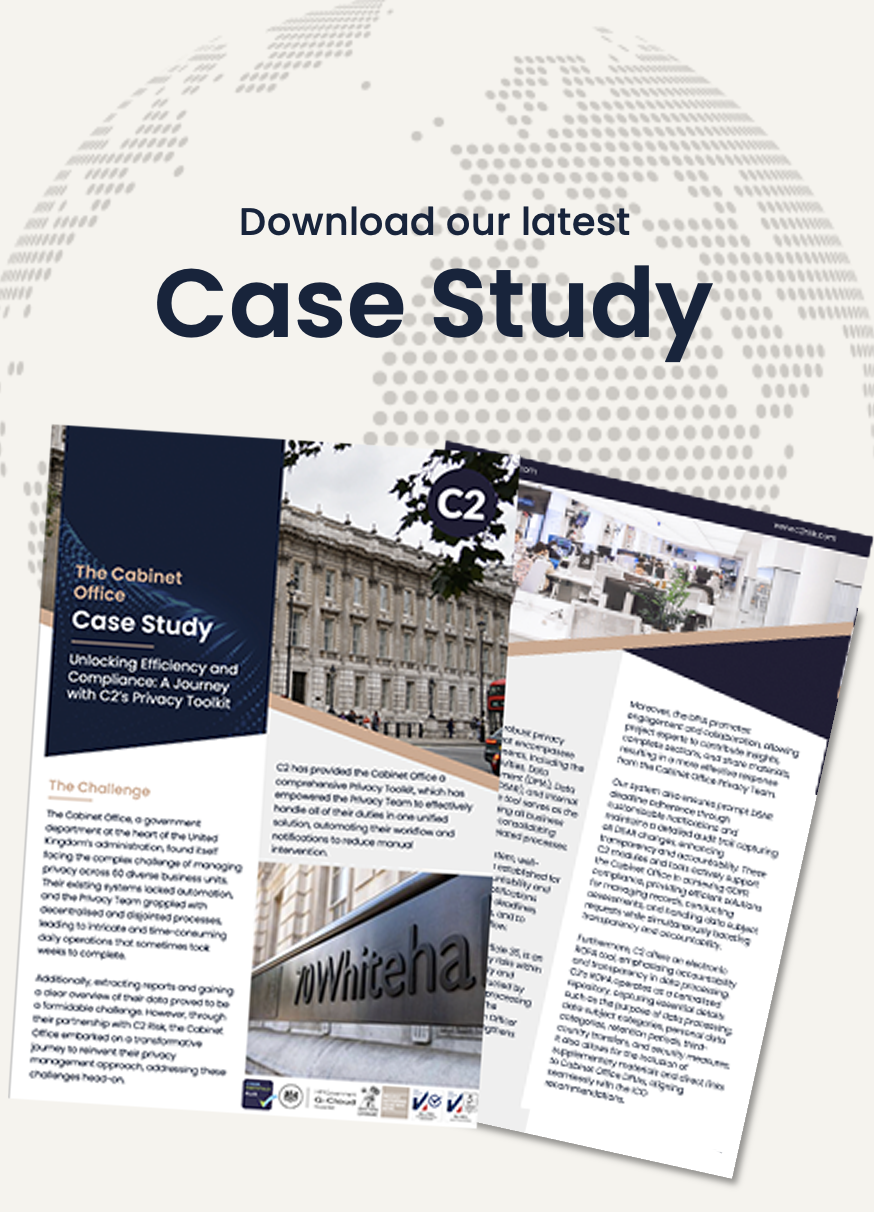The Role of Privacy Impact Assessments in Safeguarding Data

The Role of Privacy Impact Assessments in Safeguarding Data
With 65% of UK businesses collecting personal data, the digital realm is inundated with sensitive information, making safeguarding privacy more important than ever. As technology continues to evolve at a rapid pace, so do the risks associated with handling sensitive information. This is where Privacy Impact Assessments (PIAs) come in as invaluable tools to ensure privacy is integrated into data processing activities.
Below, we delve deeper into what PIAs entail, why they’re crucial, the regulations mandating them, and how to conduct one effectively.
What is a Privacy Impact Assessment?
A Privacy Impact Assessment (PIA) is a systematic process designed to identify and assess the potential privacy risks associated with a project, program, or system. It involves evaluating how personal information is collected, used, disclosed, and managed throughout its lifecycle. By conducting a PIA, organisations can proactively identify privacy concerns and implement measures to mitigate risks, thereby fostering trust and accountability with stakeholders.
Why are PIAs Important?
With heightened concerns around data privacy and security due to the rise of breaches, with 83% of breaches in 2023 revealing basic personally identifiable information of victims, PIAs serve as a proactive measure to uphold individuals’ rights and expectations regarding their personal information. By conducting a thorough assessment, organisations can:
- Enhance Transparency: PIAs promote transparency by providing stakeholders with insights into how their data is being handled and the measures in place to protect it.
- Mitigate Risks: By identifying potential privacy risks early in the development process, organisations can implement controls and safeguards to mitigate these risks effectively.
- Demonstrate Compliance: In many jurisdictions, conducting a PIA is a legal requirement under data protection regulations. Compliance not only avoids potential fines and penalties but also enhances the organisation’s reputation as a trustworthy data holder.
- Foster Trust: Demonstrating a commitment to privacy through PIAs builds trust among customers, partners, and other stakeholders, leading to stronger relationships and increased brand loyalty.
What Regulations Require Privacy Impact Assessments?
As legislation evolves to meet the demands of data privacy, compliance remains a legal necessity. Several regulations worldwide mandate the conduct of Privacy Impact Assessments to ensure the protection of personal data. Some examples include:
- General Data Protection Regulation (GDPR): The GDPR, applicable in the European Union and beyond, requires organisations to assess the impact of their data processing activities on individuals’ privacy rights. Article 35 specifically outlines the requirements for conducting PIAs in certain circumstances.
- California Consumer Privacy Act (CCPA): The CCPA, one of the most comprehensive data privacy laws in the United States, mandates the assessment of privacy risks associated with the collection and processing of consumers’ personal information.
- Health Insurance Portability and Accountability Act (HIPAA): HIPAA requires covered entities and business associates in the healthcare sector to conduct risk assessments, which include evaluating the potential impact on patient privacy.
How to Conduct a Privacy Impact Assessment
While the specifics of conducting a PIA may vary depending on the nature of the project and applicable regulations, certain key steps are generally involved in the process:
- Define the Scope: Identify the purpose, objectives, and scope of the assessment, including the systems, processes, or initiatives being evaluated.
- Data Mapping: Conduct a comprehensive inventory of the personal data being collected, processed, stored, and transmitted, along with the purposes and legal basis for such processing.
- Risk Identification: Identify and assess potential privacy risks associated with the data processing activities, considering factors such as data sensitivity, access controls, and data sharing arrangements.
- Risk Mitigation: Develop and implement measures to mitigate identified risks, such as implementing technical and organisational controls, adopting privacy-enhancing technologies, or revising policies and procedures.
- Documentation and Reporting: Document the findings, decisions, and actions taken throughout the PIA process, and prepare a report summarising the assessment’s outcomes and recommendations.
How C2’s Privacy Toolkit can help you
Our Privacy Toolkit offers a comprehensive suite of resources and frameworks tailored to support organisations in effectively conducting Privacy Impact Assessments (PIAs).
Designed with the intricacies of GDPR compliance in mind, the C2 Privacy Toolkit empowers businesses to navigate regulatory challenges effortlessly. By streamlining data management, fostering responsible data handling, and providing a systematic approach to privacy regulation adherence, our toolkit ensures seamless compliance with privacy standards. Through collaborative efforts involving the Data Protection Officer (DPO) and experts, our DPIA (Data Protection Impact Assessment) module, in particular, facilitates thorough assessments, promoting regulatory compliance and responsible data management aligned with organisational objectives.
Privacy Impact Assessments play a pivotal role in safeguarding individuals’ privacy rights and fostering trust in the digital ecosystem. By integrating privacy considerations into data processing activities, organisations can mitigate risks, comply with regulatory requirements, and uphold their commitment to respecting individuals’ privacy. Leveraging tools such as C2’s Privacy Toolkit can further enhance the effectiveness and efficiency of PIAs, ensuring that privacy remains a top priority in your business.
To find out more about how we can assist you in effortlessly navigating the complexities of GDPR compliance, reach out to our team today.
Additionally, don’t miss our CEO, Will Jackson’s session at PrivSec Global on Privacy Impact Assessments: Achieving Comprehensive Compliance, on 22nd May at 2:15pm GMT. Reserve your spot now to learn how PIAs expedite the compliance journey and unlock numerous benefits for your organisation.
About C2
C2 is a UK risk management scaleup on a mission to help businesses survive and thrive in the digital economy. C2 helps organisations manage security and compliance in a way that’s unique to their business and that does more than simply ticking off digital checkboxes. C2’s industry-leading platform supports the public and private sectors in managing their threat landscape and improving vendor controls, project, privacy, and ESG risks.



